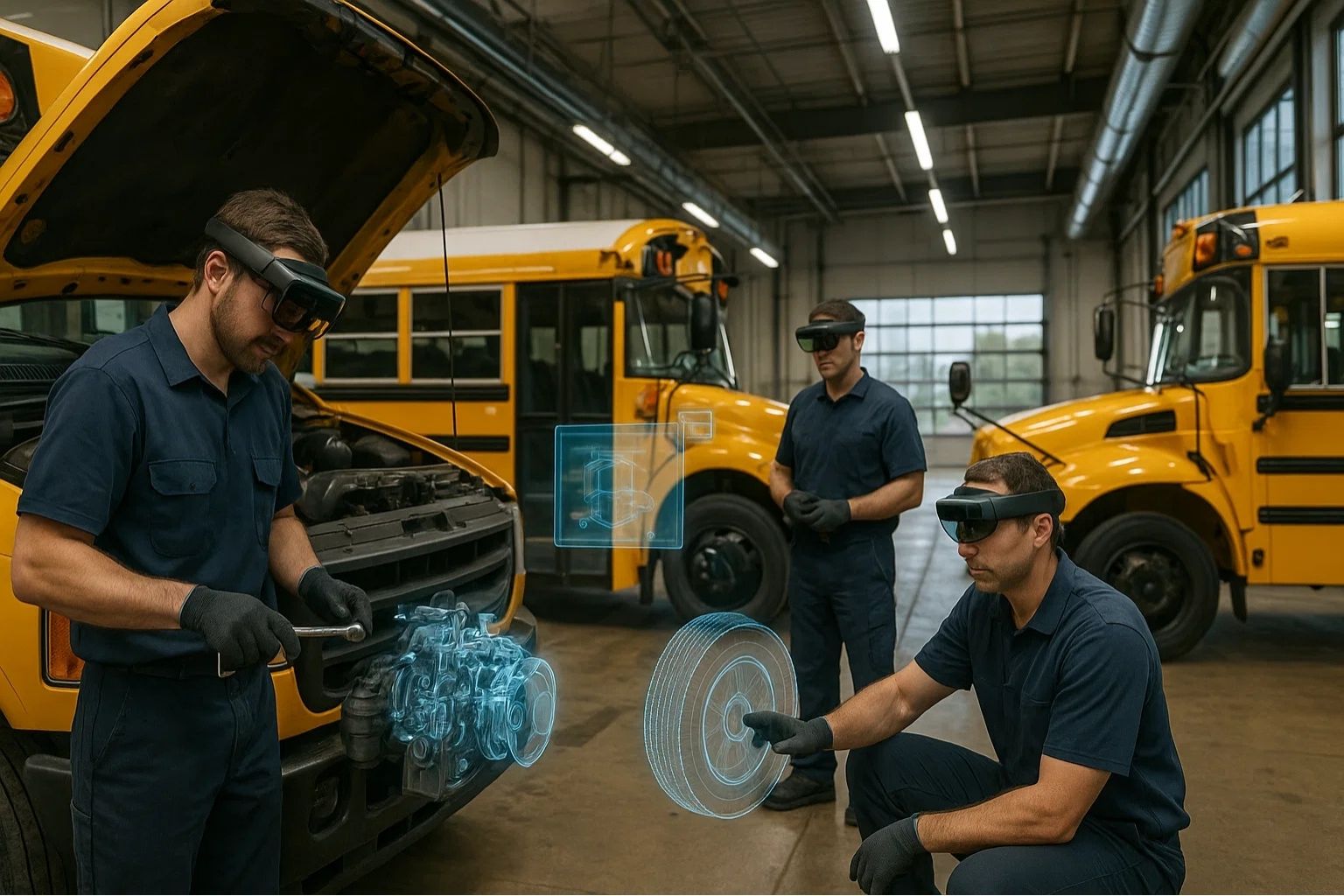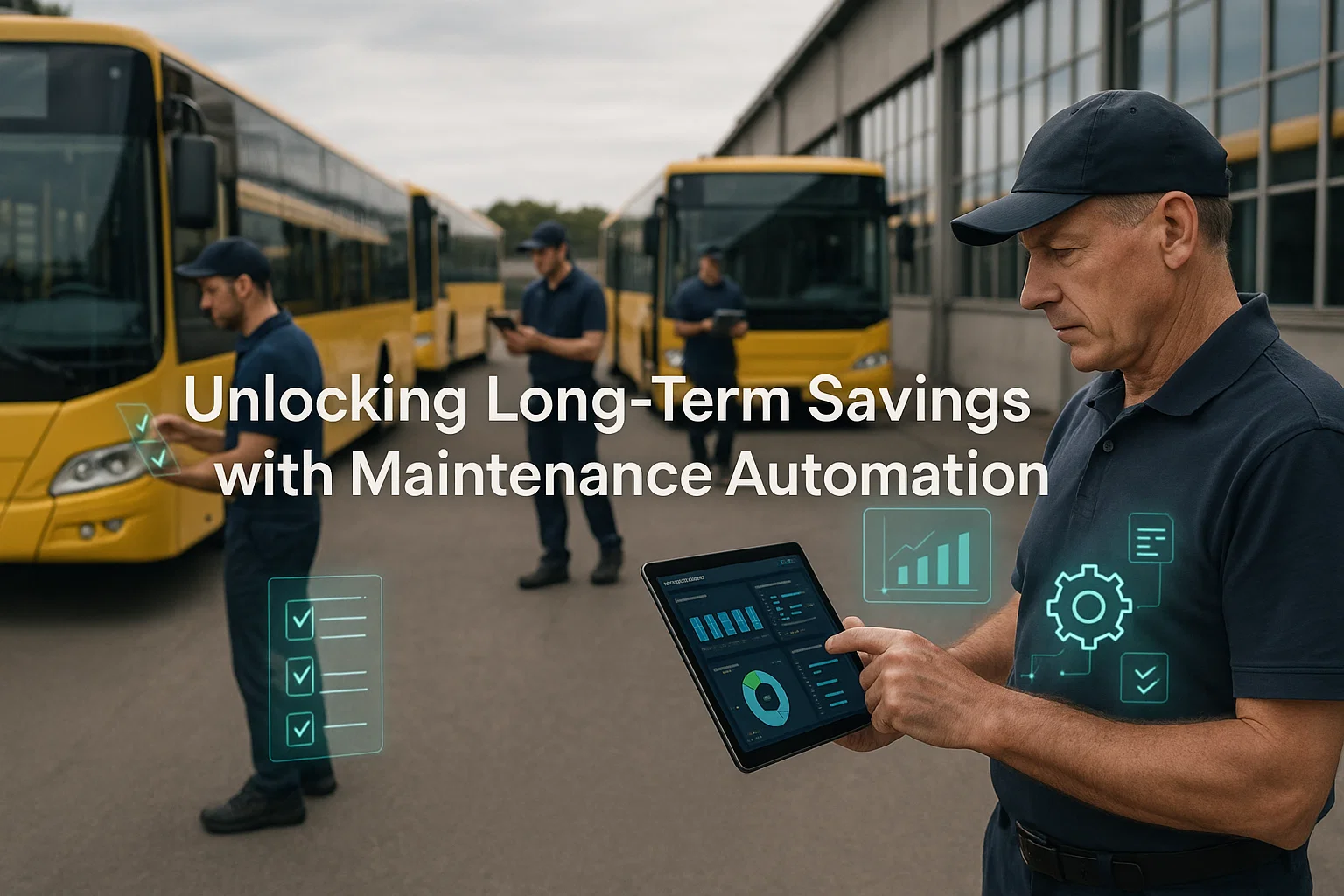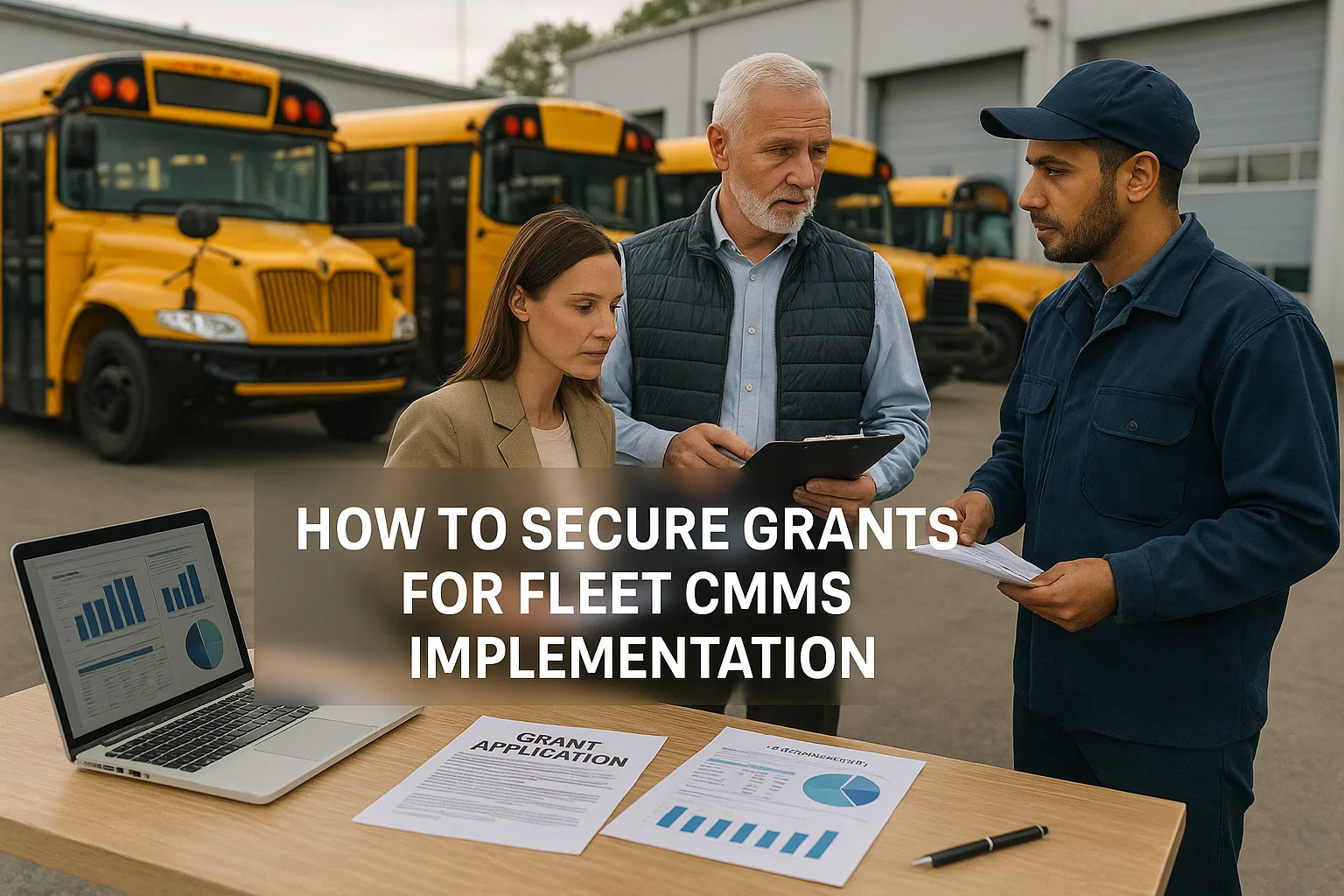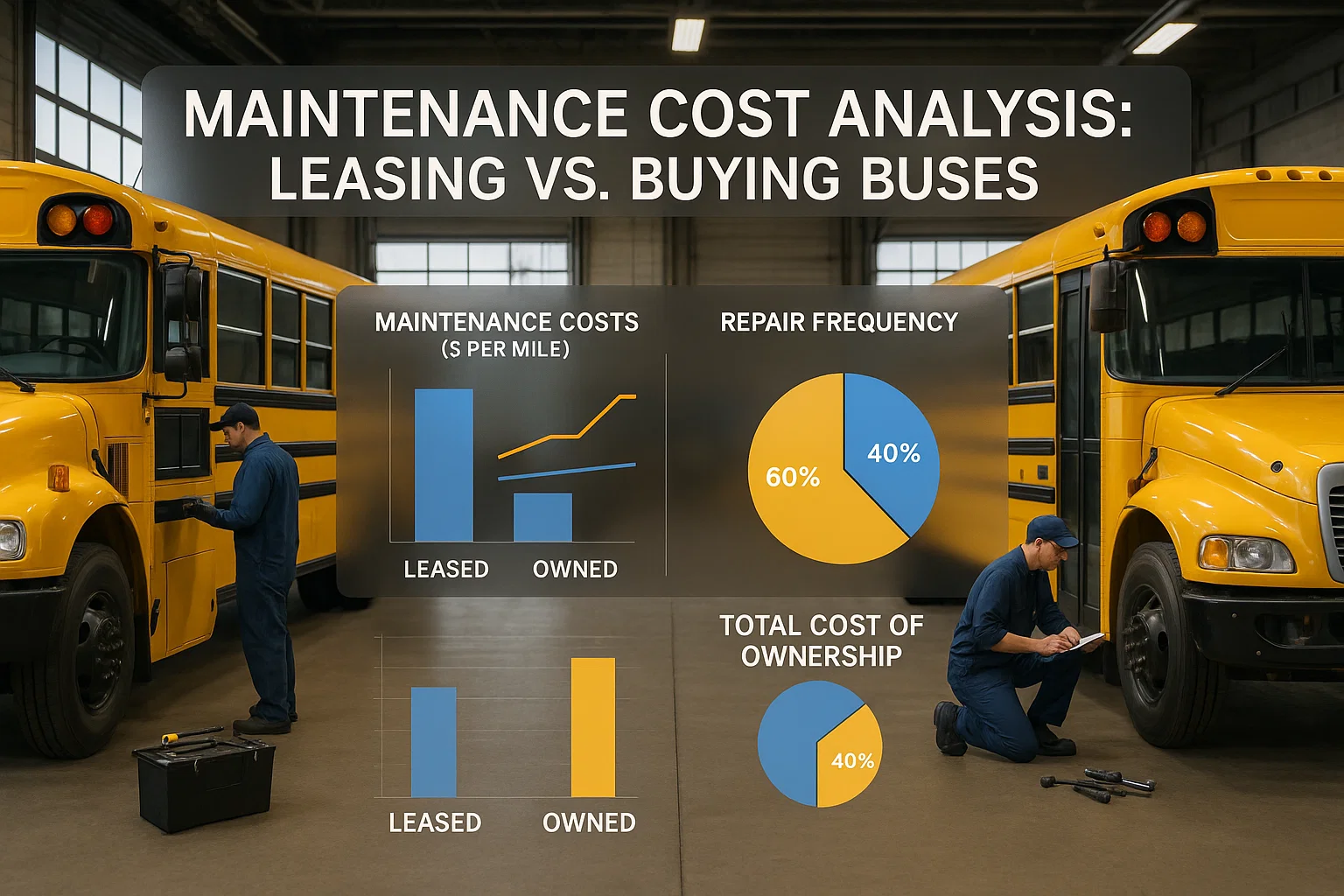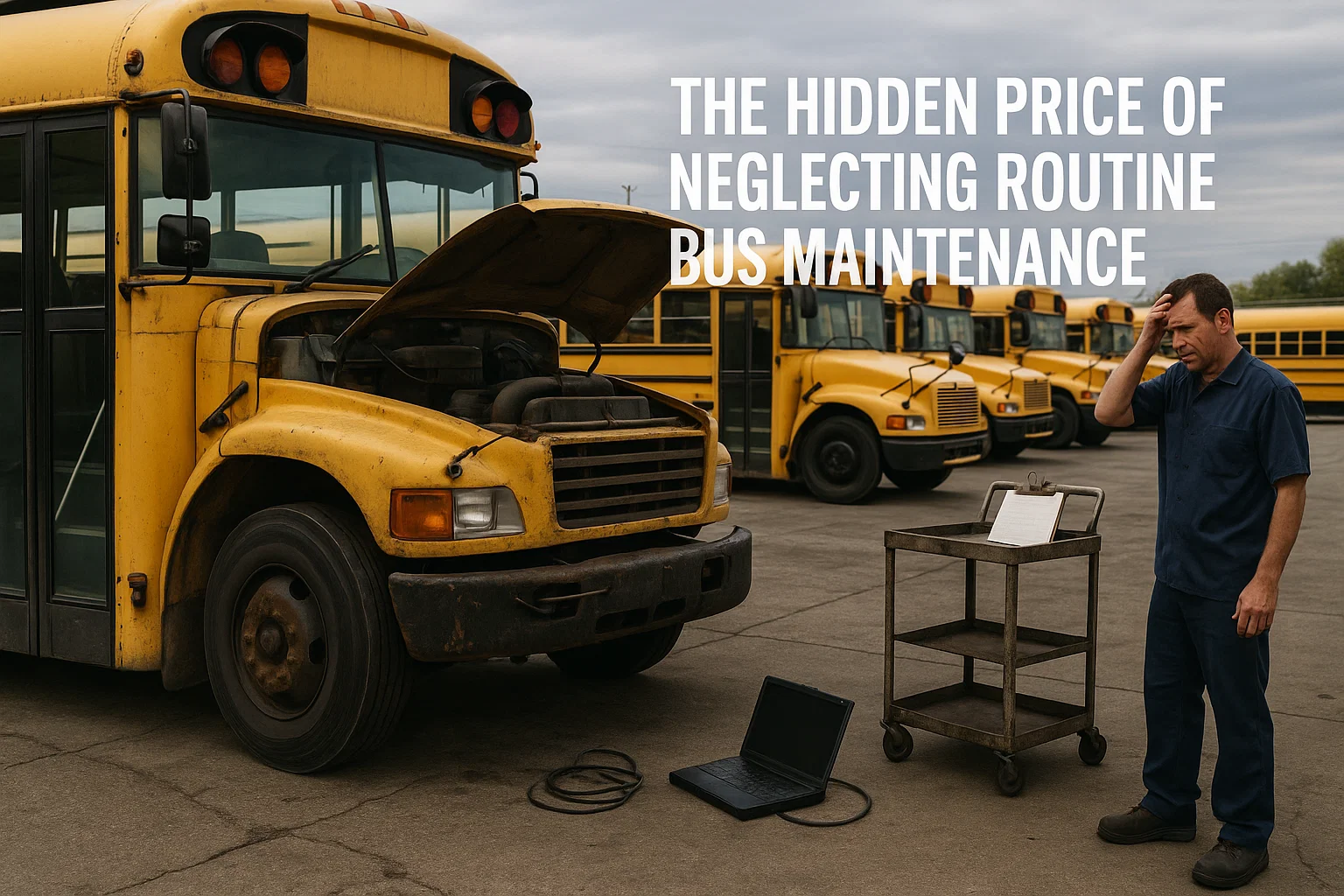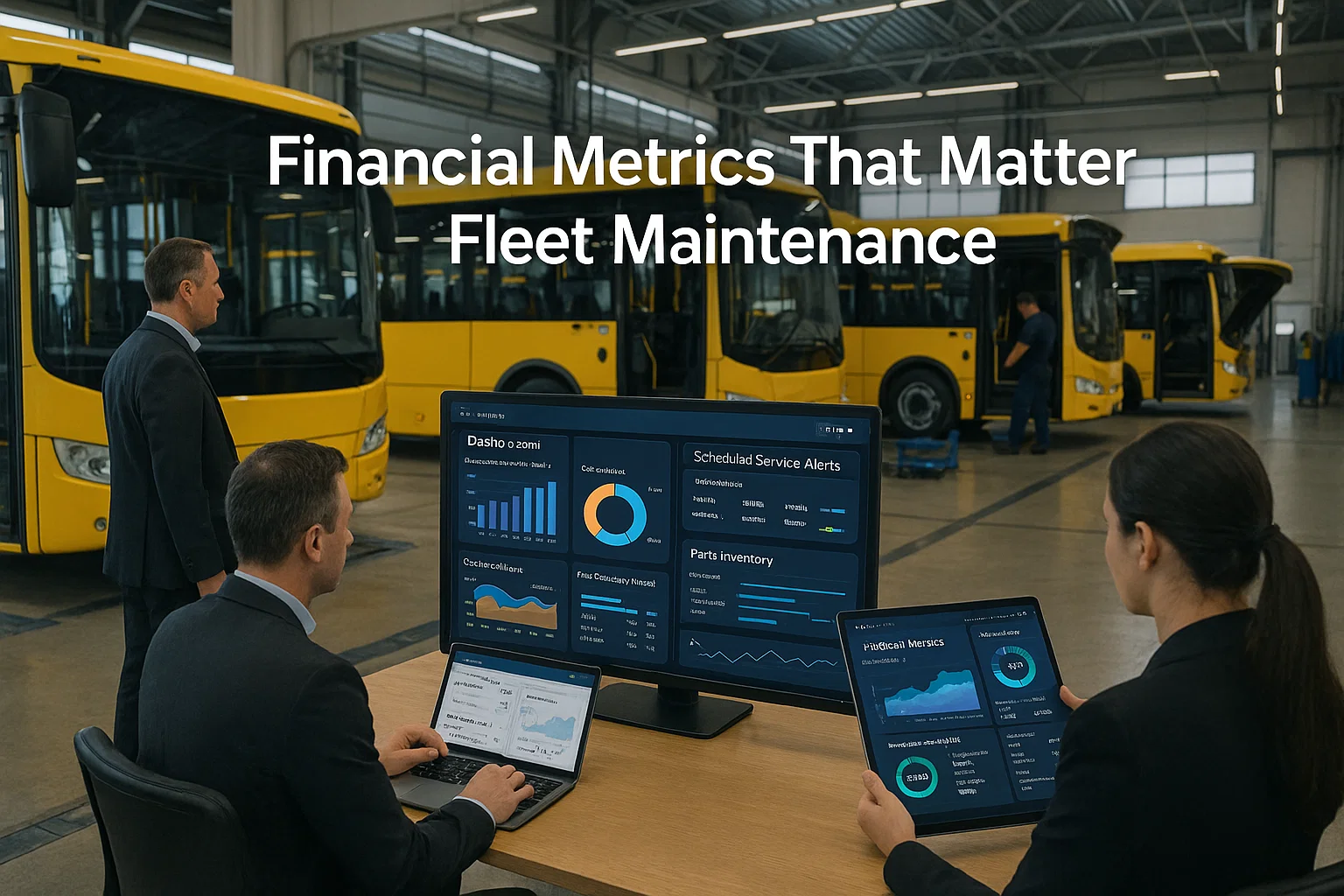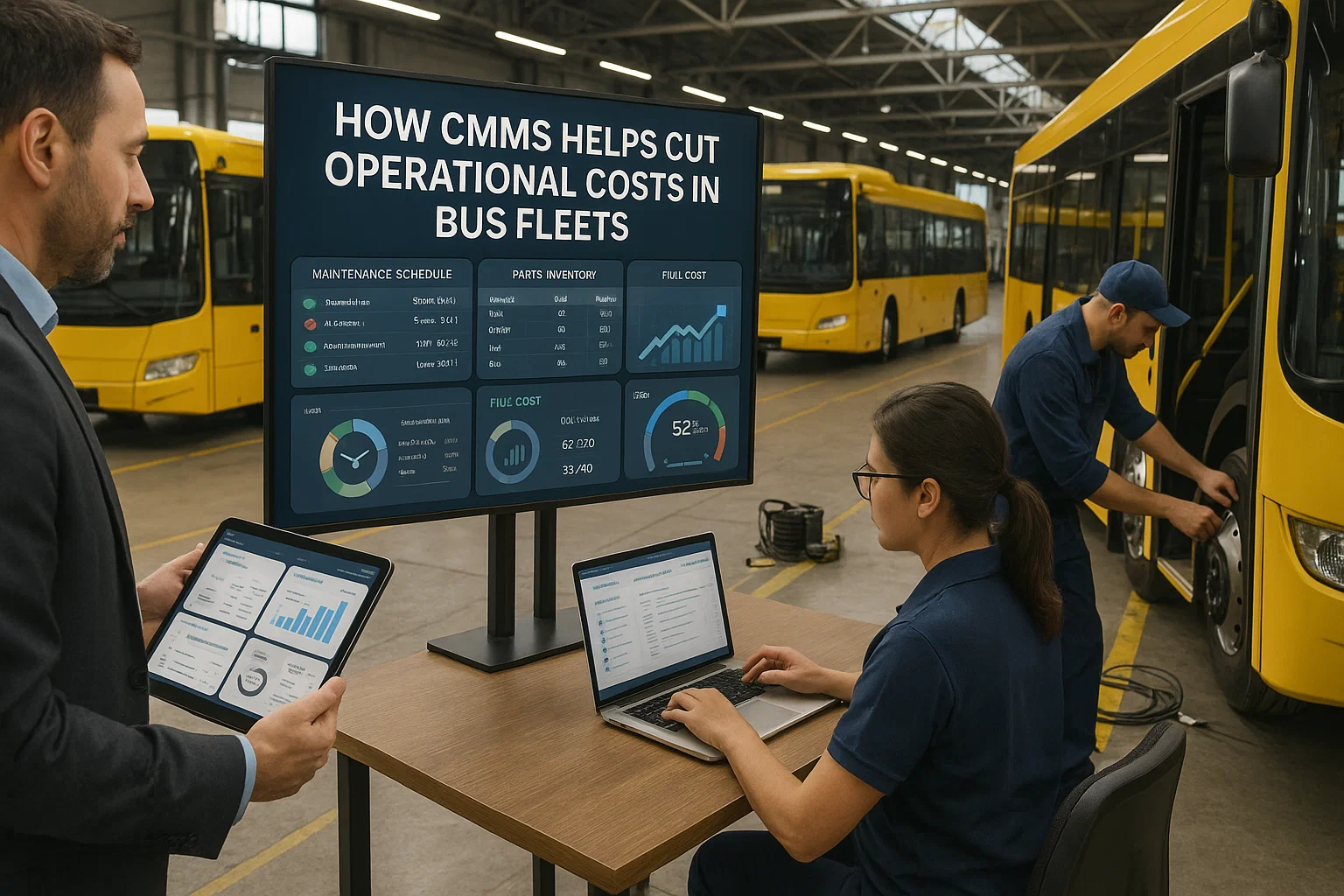Augmented reality (AR) technology is revolutionizing how bus maintenance teams acquire skills and expertise, transforming traditional training methods into immersive, interactive learning experiences that accelerate competency development. Bus CMMS platforms integrated with AR capabilities enable technicians to visualize complex systems, practice procedures risk-free, and receive real-time guidance during actual repairs.
The implementation of AR in maintenance training addresses critical challenges facing the transportation industry: skilled labor shortages, complex modern vehicle systems, and the need for rapid skill development. Through AR-enhanced training modules, technicians can see inside engines without disassembly, practice dangerous procedures safely, and learn from expert guidance overlaid directly onto equipment. This immersive approach reduces training time by 60% while improving retention rates by 75%.
US bus fleets utilizing AR training through Bus CMMS solutions report remarkable improvements in technician performance and safety. New technicians achieve competency 40% faster, experienced staff master new technologies with 50% fewer errors, and overall maintenance quality improves by 35%. These dramatic enhancements demonstrate how augmented reality transforms maintenance training from passive learning to active skill development.
Understanding AR in Maintenance Training
Augmented reality overlays digital information onto the physical world, creating an enhanced view that combines real equipment with virtual guidance. Bus CMMS platforms leverage AR technology to provide technicians with contextual information, step-by-step instructions, and visual aids directly in their field of view while working on actual vehicles.
Core AR Technologies
Modern AR training systems utilize advanced computer vision, spatial mapping, and real-time rendering to create seamless augmented experiences. Smart glasses or tablet devices equipped with cameras and sensors track the technician's position and orientation, displaying relevant information precisely where needed. This spatial awareness ensures virtual elements align perfectly with physical components, creating intuitive learning experiences.
Machine learning algorithms within AR systems adapt to individual learning styles, adjusting instruction pace and detail based on technician progress. The technology recognizes common mistakes, provides corrective feedback, and reinforces proper techniques through repetition and gamification elements that maintain engagement while building muscle memory.
AR Training Capabilities
- 3D Visualization: See inside complex systems without disassembly
- Interactive Procedures: Practice maintenance tasks with virtual guidance
- Remote Expert Assistance: Receive real-time support from specialists anywhere
- Performance Analytics: Track skill development and identify improvement areas
- Safety Simulation: Practice hazardous procedures in risk-free virtual environments
Transforming Traditional Training Methods
AR technology fundamentally changes how maintenance teams learn and develop skills, replacing passive classroom instruction with active, hands-on experiences. Bus CMMS platforms integrate AR training modules that engage multiple senses, creating memorable learning experiences that translate directly to improved job performance.
Interactive Learning Modules
Component Recognition
AR overlays identify parts and systems, teaching nomenclature through visual association
Procedure Guidance
Step-by-step instructions appear directly on equipment during practice
Troubleshooting Scenarios
Virtual faults challenge technicians to diagnose and repair problems
Accelerated Skill Development
Traditional training methods require months of classroom instruction followed by supervised practice. AR compresses this timeline by enabling immediate hands-on learning with virtual guidance. Technicians can repeat complex procedures unlimited times without consuming parts or risking equipment damage. This repetitive practice builds confidence and competence faster than conventional approaches.
The technology also enables micro-learning sessions where technicians practice specific skills during downtime. Instead of waiting for formal training sessions, staff can access AR modules on-demand, continuously improving their abilities while maintaining productivity.
Revolutionize Your Training Program with AR
Empower your maintenance team with cutting-edge augmented reality training technology.
Getting StartedBook a Demo
Safety Training Enhancement
Safety training becomes more effective and memorable through AR simulations that demonstrate hazards without exposing technicians to actual danger. Bus CMMS platforms create virtual safety scenarios that prepare teams for emergency situations while reinforcing proper safety protocols.
Hazard Recognition and Response
AR technology highlights potential hazards in the work environment, training technicians to identify and mitigate risks before beginning work. Virtual warning signs appear near dangerous areas, while animated demonstrations show consequences of improper procedures. This visual reinforcement creates lasting safety awareness that traditional training struggles to achieve.
Emergency Procedure Training
Fire Response Training
Practice extinguisher use and evacuation procedures in virtual fire scenarios
Chemical Spill Response
Learn containment and cleanup procedures without actual hazmat exposure
Electrical Safety
Visualize current flow and practice lockout/tagout procedures safely
Remote Expert Assistance and Collaboration
AR technology enables remote experts to provide real-time guidance to on-site technicians, dramatically expanding training and support capabilities. Bus CMMS platforms facilitate remote collaboration where specialists can see what technicians see and provide visual annotations directly in their field of view.
Live Remote Mentoring
Senior technicians or manufacturer specialists can guide junior staff through complex procedures from anywhere in the world. Using AR annotations, remote experts draw arrows, circle components, and provide visual instructions that appear in the technician's AR display. This remote mentoring capability ensures consistent training quality regardless of geographic constraints.
The technology also enables collaborative problem-solving where multiple experts can contribute simultaneously to challenging repairs. This collective expertise accelerates learning while ensuring maintenance quality, particularly for rare or complex issues that local teams encounter infrequently.
Measuring Training Effectiveness
AR training systems within Bus CMMS platforms provide detailed analytics on technician performance, enabling data-driven optimization of training programs. Every interaction, mistake, and success is tracked, creating comprehensive skill profiles that guide personalized development plans.
Performance Metrics and Analytics
- Task Completion Time: Measures efficiency improvements over training sessions
- Error Rates: Tracks mistakes to identify areas needing additional focus
- Skill Progression: Maps competency development across different systems
- Retention Testing: Evaluates long-term knowledge retention through periodic assessments
- Engagement Metrics: Monitors training participation and completion rates
These analytics enable training managers to identify struggling technicians early, provide targeted support, and validate training effectiveness. The data-driven approach ensures training investments deliver measurable improvements in maintenance performance.
Implementation Strategies and Best Practices
Successfully implementing AR training requires strategic planning and gradual integration with existing programs. Bus CMMS platforms provide implementation frameworks that ensure smooth adoption while maximizing training benefits.
Phased Deployment Approach
- Pilot Program: Start with enthusiastic early adopters to demonstrate value
- Content Development: Create AR modules for high-impact maintenance procedures
- Infrastructure Setup: Deploy necessary hardware and software systems
- Trainer Preparation: Educate instructors on AR technology and best practices
- Gradual Expansion: Scale successful modules across the entire maintenance team
Change Management Considerations
Some technicians may initially resist new technology, particularly those comfortable with traditional methods. Successful implementation addresses these concerns through clear communication about benefits, hands-on demonstrations, and peer champions who advocate for AR training. Emphasizing how AR enhances rather than replaces existing skills helps build acceptance.
Cost-Benefit Analysis of AR Training
While AR training requires initial investment, the return on investment through improved efficiency, reduced errors, and accelerated skill development justifies the expense. Bus CMMS platforms with integrated AR capabilities deliver comprehensive value that extends beyond direct training benefits.
Financial Impact Assessment
Training Time Reduction
60% faster skill development reduces training costs and improves productivity
Error Reduction
50% fewer maintenance mistakes prevent costly rework and vehicle damage
Safety Improvements
35% reduction in workplace accidents lowers insurance and liability costs
Long-Term Value Creation
Beyond immediate cost savings, AR training creates lasting value through improved technician retention, enhanced reputation for innovation, and ability to maintain complex modern vehicles. Fleets report that AR training programs help attract younger technicians who expect modern technology in their workplace, addressing critical workforce challenges.
Future of AR in Maintenance Training
The evolution of AR technology continues to unlock new training possibilities. Bus CMMS platforms are incorporating advanced features like artificial intelligence, haptic feedback, and photorealistic rendering that promise even more effective training experiences.
Emerging Technologies
- AI-Powered Personalization: Adaptive training that adjusts to individual learning styles
- Haptic Feedback: Feel virtual objects for more realistic practice experiences
- Voice Recognition: Natural language interaction with AR training systems
- Cloud Rendering: Photorealistic graphics without expensive local hardware
- 5G Connectivity: Ultra-low latency enables seamless remote collaboration
Industry experts predict AR will become standard in maintenance training within five years. Early adopters gain competitive advantages through superior technician skills, reduced training costs, and enhanced operational efficiency that late adopters will struggle to match.
Transform Your Training with AR Technology
Join leading fleets using augmented reality to build world-class maintenance teams.
Getting StartedBook a Demo
Frequently Asked Questions
How does Bus CMMS AR training improve technician performance and safety?
Bus CMMS AR training revolutionizes technician performance by providing immersive, hands-on learning experiences that traditional methods cannot match. The platform's AR technology overlays step-by-step guidance directly onto equipment, ensuring technicians learn procedures correctly from the start. This visual learning approach improves retention by 75% while reducing training time by 60%. Bus CMMS AR modules allow unlimited practice without consuming parts or risking equipment damage, building confidence through repetition. Safety improves dramatically as technicians can practice hazardous procedures in virtual environments, experiencing consequences of mistakes without actual danger. The system tracks every action, providing personalized feedback that accelerates skill development. Remote expert assistance through AR collaboration features ensures technicians receive immediate support when facing unfamiliar challenges. With documented improvements of 35% in maintenance quality and 50% reduction in errors, Bus CMMS AR training creates safer, more competent maintenance teams.
What makes Bus CMMS the ideal platform for implementing AR maintenance training?
Bus CMMS stands as the industry leader in AR maintenance training through its comprehensive integration of augmented reality with fleet management systems. The platform offers pre-built AR training modules specifically designed for bus maintenance procedures, eliminating the need for costly custom content development. Bus CMMS seamlessly connects AR training with maintenance records, ensuring technicians access relevant training exactly when needed. The platform's cloud-based architecture enables instant updates and content sharing across multiple locations, maintaining training consistency fleet-wide. Advanced analytics track individual and team progress, identifying skill gaps and optimizing training programs based on actual performance data. With support for various AR devices from smartphones to smart glasses, Bus CMMS provides flexible deployment options that fit any budget. The platform's proven track record—40% faster technician competency, 60% training time reduction, and measurable ROI within 6 months—makes it the trusted choice for fleets serious about maintenance excellence.
Conclusion
Augmented reality has transformed maintenance training from a time-consuming, resource-intensive process into an efficient, engaging, and highly effective skill development system. Through comprehensive Bus CMMS platforms, fleet operators now provide immersive training experiences that accelerate learning, improve retention, and enhance safety while reducing costs.
The documented benefits—60% faster training, 75% better retention, 50% fewer errors, and 35% quality improvement—demonstrate AR's transformative impact on maintenance operations. These improvements represent just the beginning, as advancing AR technology continues to unlock new training possibilities and operational advantages.
Fleet operators who embrace AR training through advanced Bus CMMS solutions position themselves at the forefront of maintenance innovation. As skilled technician shortages intensify and vehicle complexity increases, AR training transitions from competitive advantage to operational necessity. The question is not whether to implement AR training, but how quickly organizations can adopt this transformative technology to build world-class maintenance teams.
Ready to Revolutionize Your Training Program?
Discover how AR-powered Bus CMMS can transform your maintenance team's capabilities.
